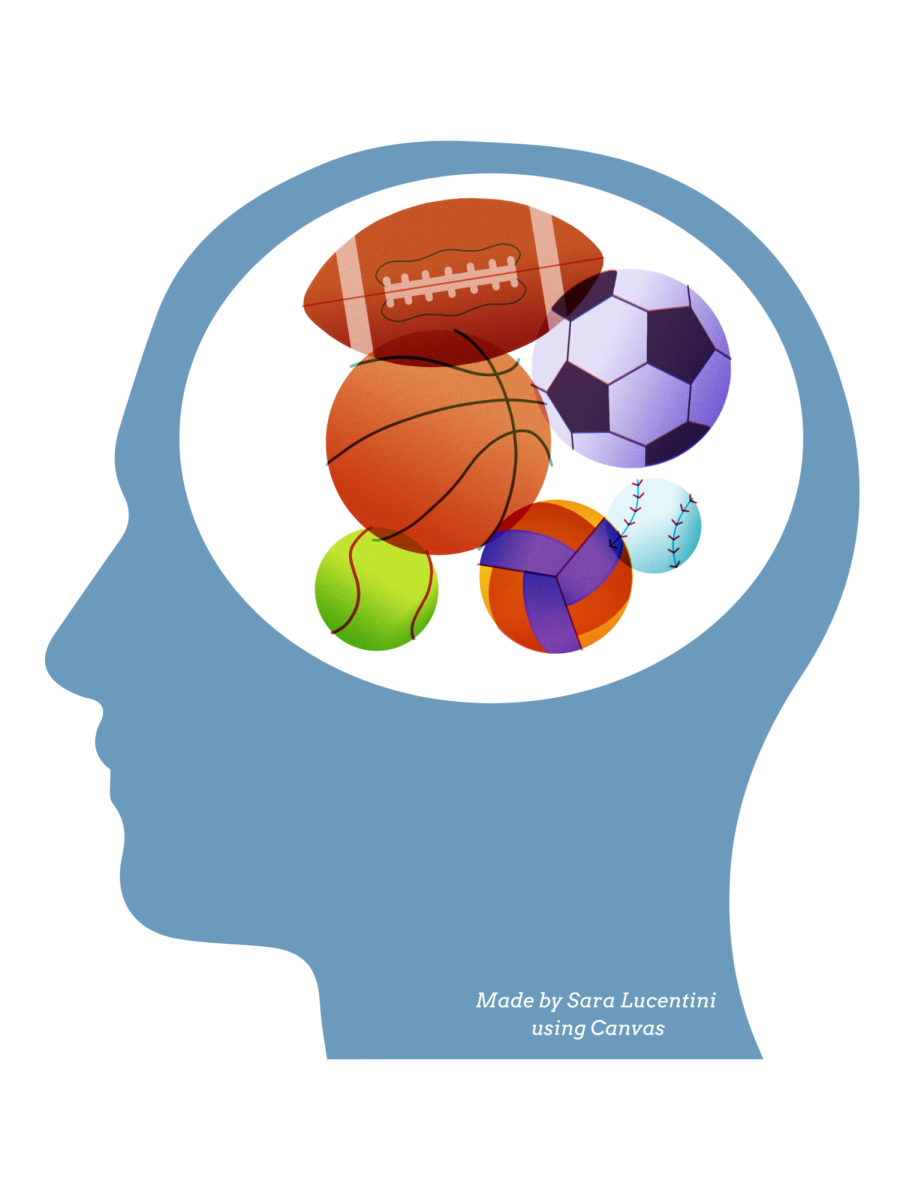For every student-athlete, sports are a significant part of their life that largely affects how they act or feel. Researchers show how sports are beneficial for those who practice them: not only physically, but psychologically and personally.
Corrine Lower, a psychology and U.S. History teacher, has a wide background in sports within her family, her brother and she were both athletes involved in swimming.
“I was a swimmer, I swam for Carroll High School and I was part of the swim club,” said Lower, “That was my entire identity”.
She enjoyed her sport and the people she got to hang out with, but there were some negative aspects too, “As for every sport, the downside of it is state finals, making teams, and getting cuts,” said Lower, “I would get so frustrated because when you work so hard and not see results or see somebody else get picked for the position that you wanted it’s a lesson to learn, but it’s hard to swallow.”
Her own experiences showed her that mental health with athletes is becoming a bigger concern because of how young kids are starting sports.
“When I was growing up most kids would try out a bunch of different sports, but my brother and his friends, for example, started at five years old swimming and that’s all they knew,” said Lower, “And especially if athletes are good at it, a lot of them form their identity and pride around that. So if they didn’t do well or they had a year where they weren’t performing well, that could take a toll”.
She then added that when athlete’s careers are over, they have to figure out who they truly are; this is a challenge especially when transitioning from high school to college.
Carroll has always offered many different sports for its students.
Juniors Elaina Fitch and Miley McCard actively participate in the color guard and rugby community respectively. They both started their sport in seventh grade and haven’t left it since.
They say the positive aspects about it are that it is fun and they get to know people with whom they create a second family and work hard to improve at what they do in a positive environment.
The only negative aspect of it for McCard is that after the games she might feel very sore, while for Fitch, sometimes sport gets to be a lot to keep track of because of all the practices she has (which could go from 3 to 5 days a week); however, she knows that the hard work will eventually pay off with great outcomes.
It is possible to understand that sport is more about mental health than physical shape, especially at a young age.
“ISports are so important for mental health because it’s a space and an opportunity to leave some of your stresses about school or life behind and just get zoned into your sport or calm your mind down and focus on something else… I show up to practice, all of that stress finally falls away” said Fitch.
Sports are considered a safe place, but stress sometimes gets the better of people.
“If I have a lot of anxiety, it can affect my mood in practice and I won’t do as well,” said McCard
Even though sometimes it could be the opposite, and sport might be the reason causing that stress, it is clear that usually, sports benefit mental health more than they damage it, especially because of the community that it’s created within.
However, it is good to remember that people are unique and have different feelings and experiences that define them as persons, so they shouldn’t ignore the signs that both their bodies and brains try to address them.





